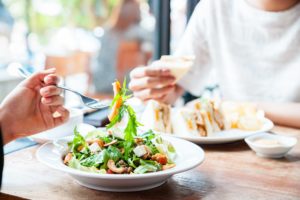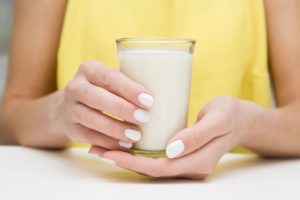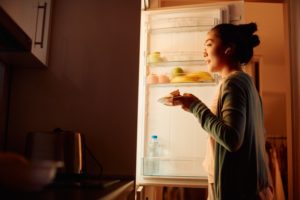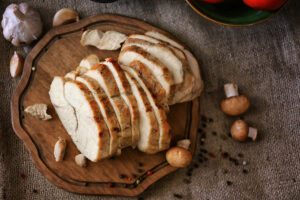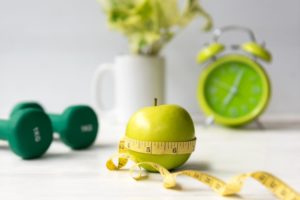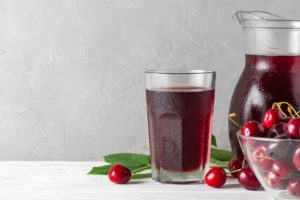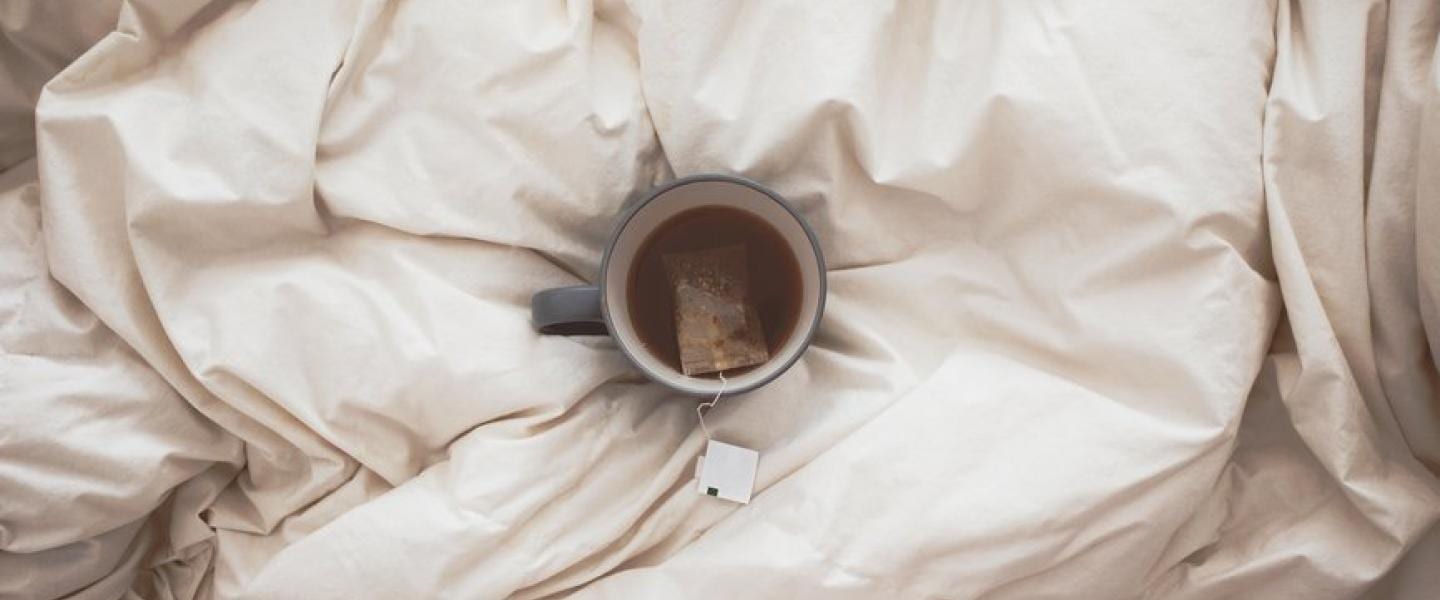Healthy Bedtime Snacks To Eat Before Sleep
- Choose nutrient-packed snacks like fruits, nuts, and seeds for better sleep.
- Balance your bedtime snack with both protein and carbohydrates.
- Essential amino acids like tryptophan and minerals like magnesium can help the body prepare for sleep.
- Be mindful of sugary or caffeinated foods, as well as high-sodium snacks.
Choosing a nighttime snack can be complicated. Not only is research inconclusive about which are the best foods for sleep, but there is also discussion about whether or not it is healthy to eat too close to bedtime. Luckily, emerging research suggests that eating certain foods before bed may have some benefits.
Banana with Almond Butter
For many people, the ideal nighttime snack may consist of a simple 150-calorie option that is high in nutrients. One study showed that consuming a low-calorie carbohydrate or protein snack 30 minutes before sleep helped boost metabolism in the morning.
Almonds and bananas are excellent sources of protein and magnesium. Magnesium is believed to play a role in regulating the timekeeping system of plants, animals, and humans, and it may have benefits for sleep. A serving size of a banana and one ounce of almonds provides just over 100 milligrams of magnesium. Bananas are also rich in potassium, which can improve sleep quality in women especially.
Protein Smoothie
For athletes, drinking a protein smoothie before bed may help with muscle repair. Research suggests that drinking whey or casein protein shakes before bed can spur a higher rate of muscle synthesis. These benefits may be even more pronounced when paired with an exercise routine earlier in the day.
Most health food stores have a variety of protein powders to choose from. There are usually vegan options as well for those who do not want to consume dairy. If you are worried about eating too much before bed, you may want to try mixing your protein powder with almond milk or water for a lower-calorie option.
Is Your Troubled Sleep a Health Risk?
A variety of issues can cause problems sleeping. Answer three questions to understand if it’s a concern you should worry about.
Oatmeal
Hot or cold oatmeal might help prepare your body for sleep and keep you full throughout the night. Oats contain magnesium as well as melatonin, the sleep hormone. Consider making a batch of overnight oats with dried fruits and seeds for a simple nighttime snack option.
“We frequently recommend magnesium supplementation prior to bedtime to improve sleep quality. However patients should consult their own physicians in regards to the dose, timing and safety of magnesium supplementation before starting.”
Dr. Lulu Guo, Sleep Physician
Fruit
Fruit is another way to get in your essential vitamins and minerals. One study found that consumption of pineapple, oranges, and bananas increased melatonin production about two hours later.
Kiwis have also been shown to have some sleep-inducing properties. In one study, adults with self-reported sleep problems were instructed to eat two kiwis an hour before bedtime . After four weeks of eating kiwis, participants were able to fall asleep faster, sleep for longer, and experience better sleep quality.
If you prefer to keep sugar consumption to a minimum, you may still find some fruits adequate for a bedtime snack. Tart cherries (and tart cherry juice) have been shown to improve sleep quality and reduce symptoms of insomnia. This is because they contain melatonin and other compounds that contribute to better sleep. You may want to try drinking a glass of tart cherry juice about an hour or two before bed. You can also add tart cherries to your protein smoothie, oatmeal or yogurt.

Nuts and Seeds
High-sodium diets are linked to poorer sleep quality. Unsalted nuts and or seeds might be a good substitute for salty snacks like potato chips.
Pistachios contain the highest amount of melatonin within the nut family. Pistachios also contain tryptophan, an amino acid that is related to sleep quality. Tryptophan helps improve sleep by helping make melatonin and serotonin. Pumpkin seeds and sesame seeds also contain tryptophan. Sprinkling pumpkin seeds on your oats or yogurt give an added crunchy texture.
Cashews and walnuts are also considered good nut options for sleep. Cashews have high levels of potassium and magnesium, and walnuts may help synthesize serotonin.
Yogurt
Yogurt is rich in calcium, and some research suggests that including calcium in your diet can make it easier to fall asleep and lead to more restorative sleep. A 100-gram serving of plain whole milk yogurt contains about 121 milligrams of calcium .
Yogurt also contains protein, as well as vitamin B6, vitamin B12, and magnesium, which can all contribute to sounder sleep. Additionally, yogurt contains gamma-aminobutyric acid (GABA), a key neurotransmitter that helps calm the body in preparation for sleep.
Try to find a plain or reduced sugar option as some yogurts can have high amounts of added sugar. You can also top your yogurt with berries or nuts.
Foods to Avoid Before Bed
It is traditionally recommended to avoid eating too late at night. Some studies show that eating before bed can contribute to obesity , and a few studies also suggest that eating high-fat or high-carbohydrate meals close to bedtime might make it harder to fall asleep and cause worse sleep quality.
Some foods could cause an upset stomach or keep you from falling asleep.
- Sweets and Excessive Carbohydrates: Although meals that spike blood sugar might shorten the time it takes to fall asleep, research suggests that diets low in vegetables and fish but high in sugar and carbohydrates are generally linked to poor-quality sleep.
- Fatty, Spicy, and Acidic Foods: Individuals who experience acid reflux should have their last meal several hours before bed and avoid common trigger foods such as mint or foods that are spicy, fatty, or highly acidic. Sleeping with the head of the bed slightly elevated can also help with acid reflux symptoms, especially after a heavy meal before bedtime.
- Caffeine: Caffeinated drinks such as soda, coffee, tea, and energy drinks have been shown to negatively impact mood and sleep in both adults and children. Try to limit caffeine to 400 milligrams or less per day, and avoid drinking caffeine within 4-6 hours of bedtime.
- Alcohol: Alcoholic drinks may help you fall asleep initially, but alcohol can shorten your overall sleep duration, decrease deep sleep, and potentially exacerbate symptoms of certain sleep disorders. Try switching to herbal teas or water a few hours before bed.

Still have questions? Ask our community!
Join our Sleep Care Community — a trusted hub of sleep health professionals, product specialists, and people just like you. Whether you need expert sleep advice for your insomnia or you’re searching for the perfect mattress, we’ve got you covered. Get personalized guidance from the experts who know sleep best.
References
9 Sources
-
Dela Cruz, J., & Kahan, D. (2021). Pre-sleep casein supplementation, metabolism, and appetite: A systematic review. Nutrients, 13(6), 1872.
https://pubmed.ncbi.nlm.nih.gov/34070862/ -
Madzima, T. A., Panton, L. B., Fretti, S. K., Kinsey, A. W., & Ormsbee, M. J. (2014). Night-time consumption of protein or carbohydrate results in increased morning resting energy expenditure in active college-aged men. The British Journal of Nutrition, 111(1), 71–77.
https://pubmed.ncbi.nlm.nih.gov/23768612/ -
Sae-Teaw, M., Johns, J., Johns, N. P., & Subongkot, S. (2013). Serum melatonin levels and antioxidant capacities after consumption of pineapple, orange, or banana by healthy male volunteers. Journal of Pineal Research, 55(1), 58–64.
https://pubmed.ncbi.nlm.nih.gov/23137025/ -
Lin, H. H., Tsai, P. S., Fang, S. C., & Liu, J. F. (2011). Effect of kiwifruit consumption on sleep quality in adults with sleep problems. Asia Pacific Journal Of Clinical Nutrition, 20(2), 169–174.
https://pubmed.ncbi.nlm.nih.gov/21669584/ -
U.S. Department of Agriculture. (2019, April 1). Yogurt, plain, whole milk.
https://fdc.nal.usda.gov/fdc-app.html#/food-details/171284/nutrients -
Yoshida, J., Eguchi, E., Nagaoka, K., Ito, T., & Ogino, K. (2018). Association of night eating habits with metabolic syndrome and its components: A longitudinal study. BMC Public Health, 18(1), 1366.
https://pubmed.ncbi.nlm.nih.gov/30537972/ -
Crispim, C. A., Zimberg, I. Z., dos Reis, B. G., Diniz, R. M., Tufik, S., & de Mello, M. T. (2011). Relationship between food intake and sleep pattern in healthy individuals. Journal of Clinical Sleep Medicine, 7(6), 659–664.
https://pubmed.ncbi.nlm.nih.gov/22171206/ -
Katagiri, R., Asakura, K., Kobayashi, S., Suga, H., & Sasaki, S. (2014). Low intake of vegetables, high intake of confectionary, and unhealthy eating habits are associated with poor sleep quality among middle-aged female Japanese workers. Journal of Occupational Health, 56(5), 359–368.
https://pubmed.ncbi.nlm.nih.gov/25168926/ -
Wikoff, D., Welsh, B. T., Henderson, R., Brorby, G. P., Britt, J., Myers, E., Goldberger, J., Lieberman, H. R., O’Brien, C., Peck, J., Tenenbein, M., Weaver, C., Harvey, S., Urban, J., & Doepker, C. (2017). Systematic review of the potential adverse effects of caffeine consumption in healthy adults, pregnant women, adolescents, and children. Food And Chemical Toxicology: An International Journal Published For The British Industrial Biological Research Association, 109(Pt 1), 585–648.
https://pubmed.ncbi.nlm.nih.gov/28438661/





